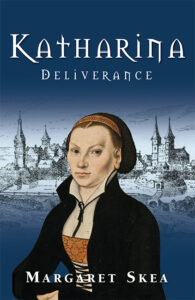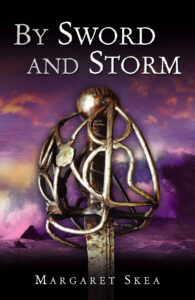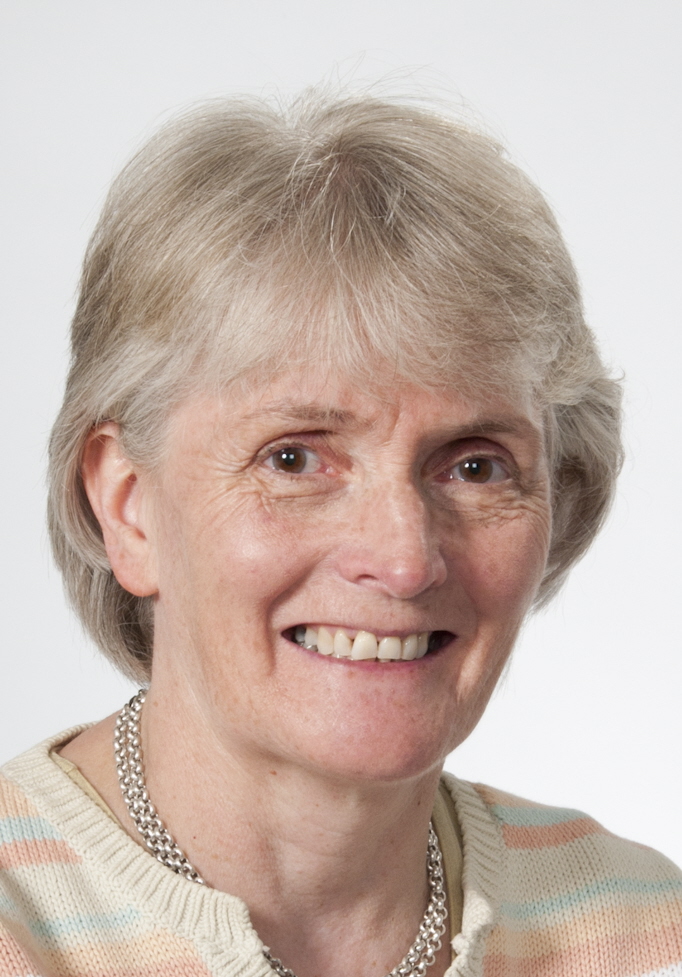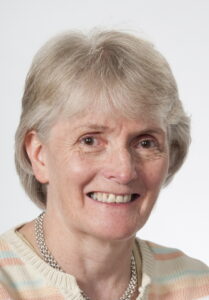At ALLi, we always advise indie authors to self-edit as much as they can, to make their books the best they can be, even before they involve a professional editor. But when we work so long and hard on our manuscripts, it can be hard to distance ourselves sufficiently to spot errors – which is where Margaret Skea‘s fun but effective technique comes in: editing backwards.
The Importance of Professional Editing
Love it or hate it, we all know how important editing is, especially for indie authors who don’t have the benefit of a publisher to undertake (and pay for) that part of the publishing process. For many of us, it is one of the key jobs that are out-sourced (up there with cover design), for there is no doubt that a professional eye can see flaws in a manuscript that the author may easily miss.
The Importance of Self-Editing

Margaret Skea's historical novel “Katharina” was runner-up in the HNS Novel Award 2018
However, good professional editing doesn’t come cheap, and it’s worth doing what you can yourself before looking to outside help – the less time the professional needs to spend tidying up a manuscript, the less it will cost you, the author-publisher.
And if, like me, you have an Achilles heel (mine is punctuation), well, that needs special attention.
I have a tendency to sprinkle commas like salt. This was brought home to me when I came third in a short story competition, the judge commenting:
‘The carnage of war, revenge and religion, seen through the eyes of a child; a very powerful combination only slightly marred by grammatical mistakes, (ie too many commas)’.
Ouch!
My initial temptation was to leave all the punctuation stuff to the professional, after all, I had more important ways to use my time – writing, for one. But then I considered how long it might take for someone else to clean up my errors – think vacuuming up split salt from a deep pile carpet…
Enter editing backwards.
First, Edit Forwards
Of course I do edit forwards first – plotting the story arc on a graph, indicating the points of tension and crisis – to ensure that momentum is building; and ‘lulls’ to give space for breath. I check for consistency – both within the book itself and, as I’m writing series, across all the books. And I read the entire manuscript aloud in as short a time as possible – usually over the space of a couple of days – to highlight anything ‘clunky’. Oh, for privacy and a sound-proof room!
The backwards edit comes after all that fairly standard stuff.
How Editing Backwards Works
Here’s how editing backwards works. Starting at the very end of the manuscript, I read the pages in reverse order, working from top to bottom of each page. Why?
Because taking each page out of context allows a tight focus on the individual words and phrases, often masked by the flow of the story.
So, aside from punctuation, what am I looking for?
 Overuse. We all have ‘pet’ words or phrases that we repeat without even noticing, I have a list I’ve compiled over the years – replacing them is a job made easy by Word’s ‘find and replace’ feature. My rule of thumb is to try not to use any word / phrase (other than and, but, a, the, etc) more than 10 times in an entire book of c 100k. But beware obscure or flowery alternatives!
Overuse. We all have ‘pet’ words or phrases that we repeat without even noticing, I have a list I’ve compiled over the years – replacing them is a job made easy by Word’s ‘find and replace’ feature. My rule of thumb is to try not to use any word / phrase (other than and, but, a, the, etc) more than 10 times in an entire book of c 100k. But beware obscure or flowery alternatives!- ‘Non’ words. Those that can be removed without affecting the sense of the sentence, but which left in lessen the impact and slow down the pace. ‘Just’ is one of my usual suspects. It can be surprising how many ‘non’ words can be culled to good effect – I once took 5,000 out of 107k in one pass.
Backwards editing may sound weird and uncomfortable, but once you get into the swing of it, it’s surprisingly easy and an invaluable tool for both cleaning and tightening a manuscript.
Try it and see.
PS Perhaps unsurprisingly, I love the Oxford comma and find it very hard to delete those. Maybe that competition judge didn’t!
OVER TO YOU Do you have any similarly quirky self-editing tips to add to Margaret's technique? We'd love to hear about them!
#Authors - here's a handy trick to help you improve your self-editing: #editing backwards. Award-winning novelist @margaretskea1 explains. #amediting #ww Share on XOTHER POSTS TO HELP YOU SELF-EDIT MORE EFFECTIVELY
From the ALLi Author Advice Center Archive






I’m in the middle of re-titling and re-covering my debut novel (The Art of Healing). I’m also making a few other changes. This article is timely and I will do this backwards thing once I’ve gone through the entire MS.
I am a disabled veteran author on Amazon. I removed all 31 of my eBooks off of Amazon again and only have about 7 back on Amazon because of so many commas in my eBooks.
I have no money for paying someone to edit them for punctuation regarding the use of a comma after words as shown below:
Suddenly,
Then,
Now,
, or
nodded,
, but
, so
Can someone be able to offer me some guidance so I can make my eBooks better regarding reducing the extra commas?
I would be so grateful to feel I won’t be getting bad Amazon comments solely based on punctuation.
Raymond,
Have you tried the free version of grammarly? There’s a lot about Grammarly that isn’t very good, but it might help you with stray commas.
But I have a suggestion of a different kind for you. I only rarely see a sentence that starts with Suddenly, or Then, that works. It’s far too easy to fall into the trap of using these two words when a stronger sentence would be better. Can you post a couple of examples of sentences where you’ve become like this? Perhaps I can help you find a better way.
Thank you for the advice!
Thank you everyone for the responses – and the encouragement!
I second the usefulness of a backwards read-through. I do it sentence by sentence, though, so I can focus entirely on grammar and punctuation–if I do it a page at a time, I get caught up in the story by mid-page and miss the mechanics.
Interesting, Robinne, I’m not sure I could manage sentence by sentence – must try the next time. I think physically it might be more difficult, unless done on screen… (at the moment I use hard copy – easy to turn over the pages.
Take heart, Margaret! It strikes me that you are far better at punctuation than your judge, who seems unusually bad at it.
S/he writes:
‘The carnage of war, revenge and religion, seen through the eyes of a child; a very powerful combination only slightly marred by grammatical mistakes, (ie too many commas)’.
1. Shouldn’t that semi-colon be a colon?
2. There could well be a comma after ‘combination’, but there definitely should be no comma after ‘mistakes’.
3. Optionally, fullstops after ‘i’ and ‘e’.
4.The full stop should be before the quotation mark, not after it.
Also, I don’t think you should feel bullied into giving up the Oxford comma if you like it. It can be really helpful sometimes for clarifying your meaning to the reader – and that’s surely the purpose of punctuation.
Thank you, Anuradha Vittachi, for the encouraging comment!
I’m amazed at the speed you manage the read aloud edit, Margaret. Kudos to you. I do that, too, but it takes me forever. Lol, you must have good, strong throat muscles. My voice can only handle a couple of chapters a day. It’s exhausting.
I have the same problems as you with commas. And as, Erin says, the old usage doesn’t seem to always apply.
Hi Loretta, My husband and children would certainly say I have good strong throat muscles 🙂
I go backwards through a manuscript (toward the very end of the editing process) to catch random codes that might cause formatting errors (mostly extra spaces in the wrong places).
I’ve never tired actually reading each page, backwards. I will give it a try with my WIP.
Hi Kassandra, I am so glad at the moment to have someone else doing formatting – not sure my eyes would spot extra spaces (oh for laser treatment) but good luck if you try the technique with your WIP. Hope it will help.
Kassandra, once you know what those “stray codes” are, you can turn on hidden and do a search/replace for them. Much faster and more reliable than finding them by sight.
Great advice, Margaret! But I would go to bat for you and debate your comma-obliterating judge. I’ve had the confusing but ultimately sharpening experience of working with several professional editors, and nothing – NOTHING – is more in flux when when it comes to copy-editing for commercial fiction than comma usage. The old rules no longer quite apply, but they don’t altogether not apply, either; and the new rules are hardly standard. In terms of reading backwards, I think that sounds like a perfectly brilliant way to tighten up the problems you described.
Thank you, Errin!